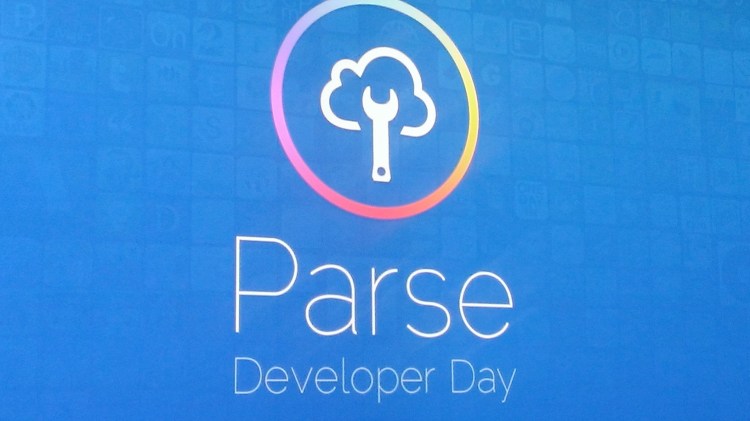SAN FRANCISCO — At Parse’s developer day in San Francisco, we got to sit down with Ilya Sukhar to chat about some of the things he skipped over onstage — things like his company’s growth, his relationships with Facebook, and how he’s creating competitors with every new product launch.
More from Parse Dev Day
Parse, a mobile-backend-as-a-service company that was acquired by Facebook earlier this year, hasn’t announced any user numbers since shortly after that acquisition. The service made a big splash with its 100,000-apps reveal back in June, but it’s remained mum on growth since.
While Sukhar couldn’t talk about the exact number of apps using Parse, he did say, “Our daily signups are many multiples of what they are before we were acquired.” Shortly after the acquisition, daily signups had spiked to 10 times the pre-acquisition average, causing the company to gain 20,000 new apps in just over a month.
“We have much more visibility and much more momentum” with the Facebook brand attached, he said. “We’re really happy with it.”
Analytics & games
Today, Parse announced it’s rolling out two very interesting products that expand its reach even more: analytics and game development.
In partnering with Unity (maker of a popular game engine), Sukhar said Parse is opening the door for a huge and entirely new audience of potential customers — and ones that already are likely to use Facebook.
“Unity has an amazing ecosystem of their own,” he said. “But the third-party alternatives to Parse [in gaming] are not great right now. … They can get the job done, but it’s far from awesome.
“Having Parse in there makes it all work really smoothly, top to bottom. And that’ll unlock the Unity community for Parse. It’s a great market; it’s a great business.”
Also, Unity’s community helps to get Parse into the hands of developers working on the all-important mid-core games, the ones that lie between, say, Halo and FarmVille.
“There’s already a bunch of those games on Facebook Canvas,” said Sukhar. “That’s not new for them, but for Parse, it is. We’ve done well with a couple hits at the top. Getting the mid-core, semi-serious games on iOS and Android to be built on Parse is a big focus for us.”
Competing with a baby giant
The other announcement, a fascinating analytics product, runs into another area of competition. While Sukhar says its competitors in gaming are minimally important, he’s now jumping into the ring with New Relic, a still-young set of analytics tools that are already hugely popular with modern web and mobile developers.
“They’re focused on your app crashes, how fast your network is,” Sukhar began. “We do some of that, but ours is more of a generalized package.”
When I pointed out that New Relic recently released new tools to handle any kind of data, from app crashes to business metrics to user experience, Sukhar brought up a better point: Parse’s analytics are “focused on people who are using other Parse products.” In other words, they’re not building a competing feature; they’re trying to build a complete ecosystem.
“Competition’s not a bad thing.”
The bigger picture
A lot of folks see Parse as a puzzling acquisition for Facebook, a seemingly disconnected developer tool for a social network.
But Parse and Facebook work together to make a very neat and complete platform for developers of all kinds — or at least, that’s the grand plan.
“There’s obviously a lot of games and apps being built for the Facebook.com experience,” said Sukhar.
“But there’s also a lot of mobile apps using Facebook features that let you take in identity and share and monetize, and I think Parse is going to be a big part of the build phase. …
“It’s part of this progression, and Parse is the first part of that progression toward market success.”
The bigger problem is building trust within the developer community, especially those devs who don’t want to give up control. “Back in the day,” devs controlled every part of the process, right down to racks and power management. Can those same devs trust one young company with an entire backend?
“We’re a bunch of neckbeards,” Sukhar said. “It’s not a PR problem; it’s an evolution problem. Over time, you gain that trust. … Multinationals are using us; any developer can use us. Over time, they’ll realize that building the same thing over and over again isn’t a good use of time. This is the world of programming and platforms. It’s a perennial thing.
“There’s also an aspect of, some people like doing this stuff. There’s a similar argument for driverless cars. A lot of people like driving and make money from driving. It’s just the natural march of technology.”
Sukhar finished by reiterating a point he’d made onstage: “We were pretty young when we got started. In a couple years, the majority of applications will be built for mobile in the first place. But a lot of apps in the future will be built on Parse or other services in the style of Parse.”


